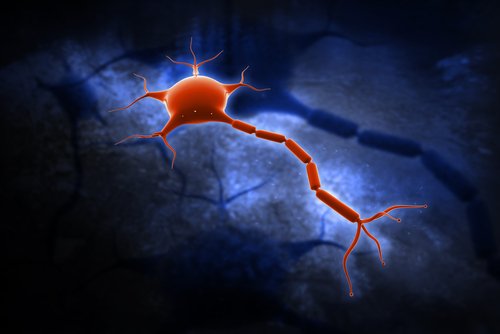Japanese Study: New MPZ Gene Variants Tied to Diverse CMT Symptoms, Features
Written by |

People with Charcot-Marie-Tooth (CMT) and mutations in the MPZ gene have highly variable disease symptoms, according to a recent Japanese study, which found that these patients may be diagnosed with either demyelinating or axonal forms of the disorder.
Notably, the MPZ genetic variations seen in Japanese patients are different from those observed in other countries.
The study, “Genetic spectrum of Charcot‐Marie‐Tooth disease associated with myelin protein zero gene variants in Japan,” was published in the journal Clinical Genetics.
The MPZ gene encodes a protein called myelin protein zero (MPZ), a major component of the protective myelin sheath that covers nerve cell endings. Without the MPZ protein, myelin becomes leaky, disrupting the normal flow of the electrical pulses used by neurons to communicate with each other.
CMT is broadly grouped into two categories: axonal CMT and demyelinating CMT. In axonal CMT, mutations impair the structure and function of axons, or nerve fibers, while in demyelinating CMT, nerve cells lose their myelin sheath.
Because of its role in myelin health, mutated versions of MPZ — called MPZ variants — typically associate with demyelinating CMT. But some variants appear to associate with axonal CMT or with an intermediate form of disease showing both axonal degeneration and demyelination. This variability highlights the genetic diversity found among carriers of MPZ variants.
Now, researchers in Japan set out to examine the genetic features of Japanese CMT patients carrying MPZ variants.
In total, 1,657 Japanese people considered to have inherited peripheral neuropathies were examined during a roughly 10-year span from April 2007 to August 2017. From this population, 85 unrelated CMT patients were identified, 64 of whom had 23 known MPZ variants. The remaining 21 patients had 17 new variants. Of note, 12 variants have only been reported in Japan.
The investigators deemed 11 of the 17 new variants as likely pathogenic, or disease-causing. Six of these variants are associated with adult-onset CMT and four with child- and infantile-onset. Three mutations were classified as demyelinating and four as axonal.
Three of the newly discovered and likely pathogenic variants — labeled p.Glu37Lys, p.Asp75Gly, and p.Ser111Tyr – associated with the same CMT features as known variants that occur near the same place in the gene.
Although carrying two mutations in the MPZ gene is rare, the researchers identified one such patient carrying one new (p.Phe19Ser) and another previously known variant (p.Asp75Val). While the previously known p.Asp75Val mutation often associates with axonal CMT and late-onset neuropathic symptoms, this individual was classified as having demyelinating CMT with an earlier onset of symptoms.
The investigators argue that more information should be sought regarding the p.Phe19Ser variant, as the current finding leaves unclear whether the two mutations co-occur in the same MPZ copy or if each is found on a separate copy. Of note, each person inherits one copy of a gene from each parent. Further clinical information and functional studies are warranted, the team said.
Cranial nerve involvement was confirmed in 20 patients, 11 of whom showed more than two symptoms of such involvement. As this is rarely seen in CMT, they suggest that the presence of cranial nerve symptoms should call attention to the possible presence of MPZ variants.
In line with past studies, this analysis found that patients with elevated creatine kinase levels were more likely to have adult-onset CMT than those with normal levels.
Elevated protein levels cerebrospinal fluid (CSF), which surround the brain and spinal cord, are associated with mutations in MPZ. In this study, 18 patients with both axonal and demyelinating CMT had high CSF protein levels. Those who had axonal types of CMT also carried new MPZ variants (p.Phe19Ser and p.Ile112Val).
“Our results,” the researchers conclude, “suggest genetic diversity across patients with MPZ variants.”





